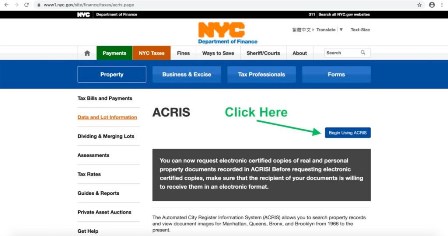https://www.nysenate.gov/newsroom/articles/2021/diane-j-savino/basement-flooding-and-cleaning-after-storm
Real Estate Investing and the Magic of Depreciation One of our team members recently read the book “Tax Free Wealth” by Ken McElroy. In it, they have a section related to real estate investing and the magic of depreciation. This led our team members to check with their accountant to see if they have been taking advantage of depreciation on one of their investment properties. What they found out was that the property had been depreciated since they purchased and that made them come up with a game plan to start depreciating it moving forward. There are pros and cons to depreciation so we suggest you speak with your accountant to see if it makes sense for your situation. Either way, it’s important that you understand how real estate depreciation works and how it can work to your advantage from a tax perspective.
Below is an excerpt from the book, this should help you understand it better, and knowing this you can have a well thought out conversation with your accountant. If you don’t have a good accountant, let us know and we can give you a referral to two of our favorite accountants 🙂
“Depreciation doesn’t apply to only regular businesses. It also applies to real estate investing. Let’s say you don’t want to be a business owner. Instead, you want to invest in real estate. Obviously there are great financial benefits to being a real estate investor. You buy a property mostly with the bank’s money and you get a tenant to pay enough in rent to not only make your payments to the bank, but also pad your pockets a little. And if you buy real estate right, chances are it will increase in value over time.
The tax benefits of long-term real estate investing can be equal to or even greater than the cash flow and increase in value (appreciation) from your properties. Let’s say that Pierre, in addition to buying a building for his restaurant, decided he wants to invest in real estate. He would like to buy a small apartment building. After a diligent search, he finds a good fit for his investment strategy, paying $800,000 for a great apartment building and it’s land. His cash flow from the apartments totals $12,000 a year after paying the bank and all other expenses.
The land is worth $200,000. So the building and its contents are worth $600,000. Let’s suppose that $100,000 of the $600,000 is for contents and $500,000 is for building. Depreciation in the United States on residential property is about 3.6% per year. That means Pierre will get a depreciation deduction for the building of about $18,000 and another $20,000 of depreciation on the contents (20 percent) each year. That’s a total of $38,000.
Since his cash flow from the apartments is only $12,000, when he subtracts the depreciation expense, Pierre ends up with a loss for tax purposes of $26,000. So Pierre’s $12,000 of cash flow is entirely tax free. In addition, Pierre has $26,000 of loss to use against other income. If Pierre is in a 40% tax bracket, this $26,000 of loss will create a tax refund for him of over $10,000. Again, Pierre can use that money to reinvest in his business or in real estate. Or he can take a vacation, improve his house, or do anything else he wants to do. After all, it’s his money.
In Pierre’s case, the government essentially paid him to invest in real estate. And they’ll do the same for you/ You can get the government to subsidize your business and your real estate, or pay for your vacation or home improvements, simply through the magic of depreciation.”
How to Access your Property Records in NYC If you’re a local NYC homeowner, you’ve probably heard of ACRIS, but just in case you haven’t, make sure you bookmark this site and keep it for future reference. ACRIS stands for Automated City Register Information System. ACRIS supports the Office of the City Register in recording and maintaining official documents related to real estate, including deeds, mortgages and leases. ACRIS allows you to search property records and view document images for Manhattan, Queens, Bronx, and Brooklyn from 1966 to the present as well as:
Find a Property Borough, Block and Lot (BBL) or Address associated with a Property Create Cover Pages and Transfer Tax Forms for Recording Documents Compute Property Transfer and Mortgage Recording Taxes Documents recorded prior to 1966 are typically not available on ACRIS. Still, it is a very helpful resource, especially when you need to access documents that are tied to your property. Below is a link to the ACRIS website. When you have a chance, pop in your address and take a look at all of the documents available. If you have any questions about ACRIS, or if you need any help accessing or understanding a specific document, feel free to reach out anytime.
https://a836-acris.nyc.gov/CP/
Well, that does it for this edition of Homeowner Connect. If you made it this far, thanks for reading! We work hard to make these informative and helpful so we hope that you find some value in the information.
HAVE A GREAT FALL! 😀😊😁





